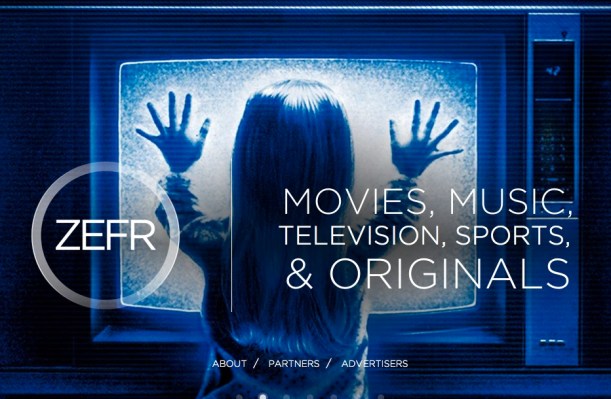Los Angeles-based Movieclips has done well for itself by, um, clipping movies into bite-sized clips that viewers love. But there’s a whole bigger world of content out there, and it plans to tackle it with a whole new brand and $18.5 million in new funding.
Movieclips was founded in 2009 with the idea of making memorable film moments available to fans, and helping studio partners monetize them. Since then, it has partnered with six major Hollywood studios and licensed their content to create and distribute clips from full-length movies.
Over the past few years, Movieclips has used its own clipping and tagging technology to look for popular moments create more than 25,000 clips that viewers can access on its own site, as well as its popular YouTube channel. Launched just ten months ago, it’s quickly shot up the comScore YouTube charts, and Movieclips now sees more than 600 million monthly views, with more than 3 billion total views since being founded.
With that challenge completed, the company plans to extend beyond the movie business, and also add content in the TV, music, and sports categories. To do so, it’s rebranding as Zefr, and will be adding clips from these new categories as well.
It’s also picked up new funding along the way. It’s raised $18.5 million in a Series C financing round led by U.S. Venture Partners, with participation from existing investors MK Capital, Shasta Ventures, SoftTech VC, First Round Capital, Richmond Park Partners, and Machinima CEO Allen DeBevoise. Along with the infusion of new cash, John Hadl of U.S. Venture Partners will join the board.
The company says the funding will be used to “drive the company’s rapid growth in its new music, sports and television verticals, expand internationally and invest in new technology.” I’ve reached out to the founders, who are generally good guys, and will update the post with more when I hear back.
UPDATE: So I spoke with co-founder Zach James about the new verticals, and here’s what I’ve learned about the company’s plans for Zefr:
There’s a big difference between clipping scenes from movies and putting them online, versus taking content from TV and sports that’s happening in real-time and helping content owners monetize it.
For one thing, there’s the matter of monetization — movie clips have a long-tail value to them, as fans watch and re-watch moments from their favorite films and share them with friends. It’s also pretty easy to determine which clips are popular, and which people will watch over and over again. And once movies are filmed and edited, they’re pretty much set in stone. So it’s easy to make sure you’re getting the right clip. But TV and sports and music don’t work that way — content appears much more quickly, and the value of clips are much more ephemeral.
James said the company’s lines of business are separated between its Genome and ID divisions. Genome is centered around the clipping and uploading of videos, while ID is focused on identifying clips that users have uploaded. The new verticals will mostly be about ID — finding clips as they are uploaded to YouTube, claiming them for rights owners, and helping them monetize those clips.
So Zefr is really about fast-tracking content ID. The company now has about 100 people, working day and night shifts to keep tabs on interesting clips being uploaded to YouTube in real-time. The average amount of time for finding a piece of content is about 13 hours, which is pretty fast when you consider that YouTube users upload more than 72 hours of content every minute. With clips that become popular, the time is obviously much shorter.
It helps reduce the stress for content owners who don’t have the resources to track content ID on their own. On the one hand, Zefr can quickly identify, claim, and help rights owners monetize content as it’s uploaded. On the other hand, if the quality of those videos aren’t quite up to snuff, it can act as the anti-piracy arm of those content owners. It’s potentially a huge opportunity, especially as content owners get used to letting users submit videos and claiming them, as as more consumers get used to watching their videos online.
